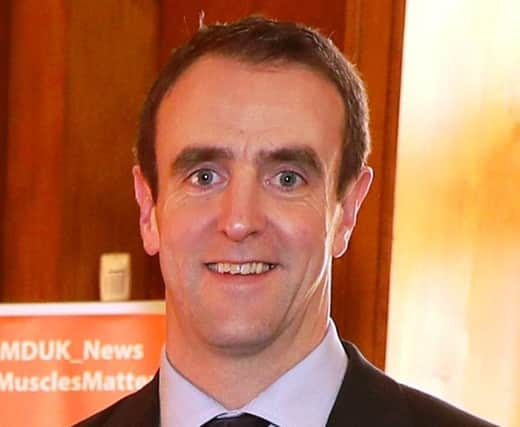Call for '˜common sense' over minibus licensing


SDLP Foyle MLA and former Environment Minister Mark H Durkan had called for the Department to apply “a common sense approach” to guidance on minibus licensing.
Mr Durkan said that an approach which required volunteers or teachers to meet expensive Professional Competence standards would be a “fundamental mistake”.
Advertisement
Hide AdAdvertisement
Hide AdHe claimed: “Most people will have their head in their hands reading about what appears to be a bureaucracy motivated approach to minibus licensing.
“A change in the current system, which allows volunteers, teachers and those not driving a minibus for commercial gain. would be a fundamental mistake and would have a serious knock-on impact.
“Community transport providers and schools across the north rely on the flexibility of the current system. At a time when budgets are extremely tight, forcing schools and community groups to put people through the CPC qualification is an additional burden that many can’t shoulder.”
“The Department of Infrastructure must apply a common sense approach to this. But the best way to ensure it’s resolved properly is to have a Minister in post, making decisions in the best interests of our communities and those we represent.”
Advertisement
Hide AdAdvertisement
Hide AdA Department for Infrastructure spokesperson responded: “In recent months, it became clear to the Department that interpretation of existing legislation regarding minibus driving licence requirements was causing some confusion. The Department sought to address this by developing clear guidance and consulting with those impacted.
“The draft guidance was issued for public consultation on September 22. It confirmed that under the existing legislation paid drivers should not be able to drive a minibus on their D1 (not for hire or reward) driving licence and that some volunteer drivers, undertaking commercial passenger transport activities, may also require a full D or D1 driving licence. For example, teachers in paid employment who have a D1 category on their licence can no longer drive a school minibus without a Driver Certificate of Professional Competence (Driver CPC) qualification.”
She added: “It is clear that this is a highly complex and controversial area, which has been subject to significant public and political interest. Since the consultation exercise issued on 22 September the Department has been working with those likely to be impacted to ensure they meet the requirements of the current legislation and allow an orderly transition. However, the Department has since received a legal challenge against the current arrangements as a result of which it is required to clarify the legal position at the end of the month.
“The Department is very mindful of the impacts on the community and schools and has been engaging widely with those affected and with other interested organisations including the Equality Commission, about the delivery of key services. This will continue in the coming days and weeks.”